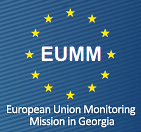Notes
From a Frozen Conflict
In the wake of the Cold War many Eastern European countries commenced a vigorous reconstruction of their national identity. For numerous countries, formally allied with the Soviet Union, it was expressed through at times dramatic ruptures with their past and renewed aspirations for self-determination or integration in a greater European project as well as NATO. Western powers quickly proclaimed themselves “victors” and approached the changing global landscape as a zero-sum game - arguably giving rise to a number of conflicts in the Caucasus.
Research
for the series
was conducted during deployment to the European Union Monitoring Mission (EUMM). Fallckolm was based in Mtskheta as a Human Security Monitor between 2017-2018.

